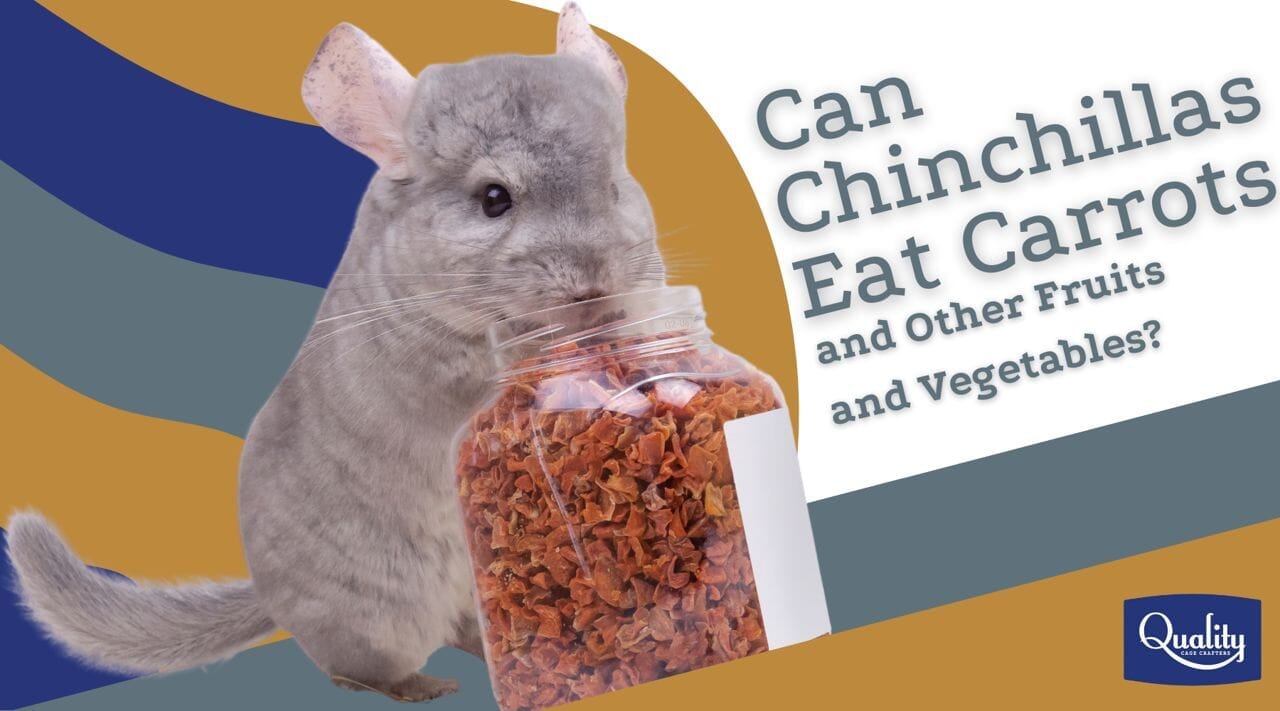Yes, chinchillas can eat carrots. Carrots are a safe and nutritious treat for chinchillas.
Chinchillas are adorable little rodents known for their soft and dense fur, lively nature, and curious behavior. If you are a chinchilla owner or considering getting one, you may be curious about what foods are safe to feed them. One common question that arises is whether chinchillas can eat carrots.
The good news is, yes, they can! Carrots are a safe and nutritious treat for chinchillas, provided they are given in moderation. Carrots are packed with essential vitamins and minerals, such as Vitamin C and beta carotene, which can support the overall health and well-being of your furry friend. However, it’s important to note that carrots should be given as an occasional treat and not as a staple part of their diet.
Are Carrots Safe For Chinchillas?
Carrots can be a tempting snack for chinchillas due to their vibrant color and sweet taste. However, it’s important to know that chinchillas have very specific dietary needs. While carrots are generally safe for chinchillas to consume in small amounts as an occasional treat, they should not be a regular part of their diet.
Carrots are high in sugar and can cause digestive issues and weight gain if fed in excess. Instead, chinchillas should primarily be fed a balanced diet of hay, pellets, and occasional fresh vegetables. Although carrots do offer some nutritional benefits, such as vitamin A, it’s crucial to provide them in moderation to prevent any adverse health effects.
Always consult with a veterinarian before introducing any new food to your chinchilla’s diet to ensure their well-being.
Balancing Chinchilla Diets: Exploring Alternatives To Carrots
Chinchillas thrive on an assortment of foods, and while carrots are a popular choice for many owners, there are other options worth exploring. When it comes to balancing chinchilla diets, it’s essential to consider high-fiber and low-calorie alternatives to keep these furry friends healthy and happy.
Variety plays a vital role in their diet, ensuring they receive a range of nutrients. There are several suitable snacks for chinchillas that offer similar benefits to carrots, such as leafy greens, herbs, and hay-based treats. Including these alternatives can provide a diverse and enjoyable eating experience for your pet, promoting good digestion and overall well-being.
So, when considering what to feed your chinchilla, keep in mind the importance of variety and explore nutritious alternatives to carrots.
Dos And Don’Ts: Navigating Chinchilla Snacking Habits
Chinchillas have specific dietary needs, and it’s important to know what they can and cannot eat. When it comes to carrots, they can be given in moderation as a treat. However, portion control is essential to prevent overfeeding. Introducing new foods to your chinchilla’s diet should be done gradually, while closely monitoring their reactions.
This helps identify any signs of allergies or digestive issues. Additionally, storing snacks properly ensures their freshness and prevents mold growth. Chinchillas thrive on a balanced diet of hay, pellets, and occasional treats, so it’s crucial to be mindful of their snacking habits.
By following these guidelines, you can provide your furry friend with a healthy and enjoyable diet.

Credit: qualitycage.com
Conclusion
Chinchillas can eat carrots as part of a balanced diet, but they should be given in moderation. Carrots are high in sugar and can cause digestive issues and obesity if overfed to these small rodents. It’s important to remember that chinchillas are herbivores, and their dietary needs should mainly consist of hay, pellets, and occasional treats like vegetables, including carrots.
To ensure the health and well-being of your chinchilla, you should introduce new foods gradually and monitor their reactions. If you notice any signs of discomfort or digestive problems, it’s best to consult a veterinarian. Providing a varied diet that includes a small amount of carrots can be a nutritious addition to a chinchilla’s menu.
Remember, always prioritize the welfare of your furry friend and their specific dietary requirements.
